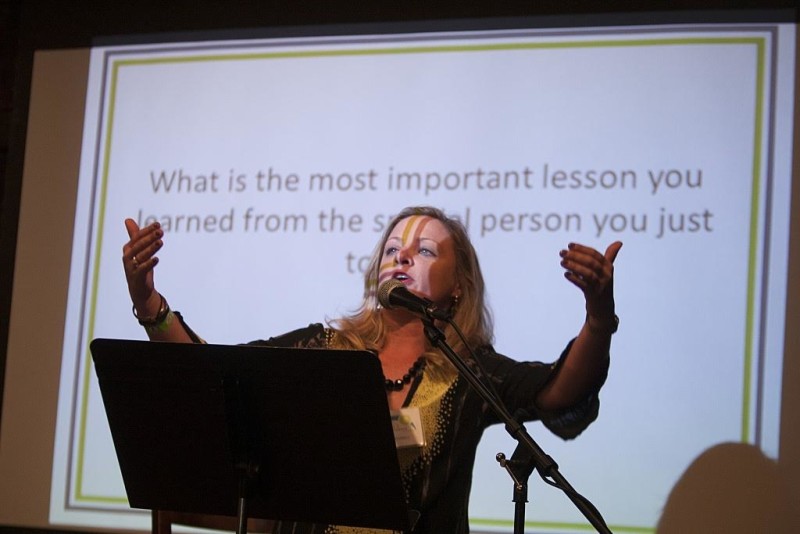“Talking about this stuff, even gathering the relevant information, definitely isn’t fun,” he says. "But I thought the product did a pretty good job of prompting me to fill stuff out in kind-of a spoon-fed fashion.”
New Apps and Services
People planning for their end-of-life care and looking to store medical, legal and financial documents have a host of new online services vying for the attention of the baby boomer population.
Most online planning services, or “storage vaults,” help people identify and upload advance health care directives to be quickly and easily accessed by loved ones. An advance directive, which may take the form of a living will or power of attorney, can help ensure one’s medical wishes are honored by emergency medical providers and physicians.
If these products inspire people of all backgrounds to carefully consider their end-of-life wishes, "such a product can be of immense value," said Randi Belisomo, a Chicago-based journalist and co-founder of Life Matters Media, a nonprofit providing content related to end-of-life decision-making.
But Belisomo says online planning services are not for everyone – because there is no “right way” for a person to spend their final days or “one size fits all” advance directive.
Everplans cofounder Abby Schneiderman said she wants conversations about end-of-life care and death to become as common and accepted as talk about weddings or babies.
The Everplans website provides step-by-step guides for end-of-life planning and advice for attending funerals, religious burials and caring for seriously ill loved ones, among other things.
The idea came to Schneiderman in the spring of 2010, when she was planning for her wedding.
“There are plenty of online resources for the bride-to-be or parent-to-be and even retirement, but after that it started to get empty," she said. "There didn't seem to be any modern or sophisticated resources guiding people through end-of-life planning, but end-of-life affects everybody.”
On Everplans, people appoint trusted loved ones as “deputies” who are able to view documents from any Internet-capable device. Full-access to the site costs $75 per year. Schneiderman said the company just added a new section for people to pass on things like family histories, genealogies, photos or even recipes.
Similar to Everplans, San Francisco-based Estate Assist provides a digital space for people to upload and store passwords, photos and financial documents for online or offline use.
Founder Woodrow Levin was inspired to create Estate Assist nearly a decade ago, after witnessing his father struggle to find paperwork after grandmother’s death.
“(Estate Assist) protects your financial and digital assets, as well as important life documents, such as life insurance, 401(K), bank account, brokerage account,” he says. Estate Assist keeps all that information secure and updated. In case of death, that information is sent to pre-approved loved ones and financial advisors.
Levin declined to state how many people pay for the service, which launched in 2014. It costs $99 ($149 with identity theft protection) per year or 9.95 per month ($14.95 with identity theft protection).
Changing the Conversation Around Death
As America’s 65 and older population expands to 72 million by 2030, roughly 20 percent of the total population, the “Silver Tsunami” coincides with the rapid growth of online storage, or “cloud.”
“We're starting to get over the complete reluctance to understand death as a natural part of life and bring it more into conversation,” says Kerry Shannon, chief executive officer and founder of Chicago-based Final Roadmap, one of the growing number of Internet services for end-of-life planning.
“I give baby boomer women a lot of credit for this. They changed the way we address childbirth – from doing just what the doctor says and being asleep and going along – to being an active participant," she said. "I see them largely doing the same thing around end of life, as they look at their parents and know what they don't want their parents to go through and what they want for themselves.”
Final Roadmap provides a set of tools to guide people through end-of-life planning. Those who sign up complete six different sections of the toolkit: medical care, legal and financial, physical death, visitation and services, messages for loved ones after death (attach letters, messages and videos) and notifications. Members may change or supplement these sections at any time. It costs a one-time fee of $249.
But Ronette Leal McCarthy, and end-of-life care advocate and legal counsel to Chicago-based Elements: The Cremation Company, cautions against relying solely on digital technology, especially from newer companies that may not be around in five or 10 years.
“A lot of these online companies are maybe three or four years old, in their infancy. I think that if you are going to utilize any online digital company you need to have some sort of paper backup,” she says. “You still need paper somewhere. You need an original copy stored somewhere.”
Although 90 percent of Americans say it is important to have end of life conversations with their loved ones, less than one-third have had such conversations, said McCarthy.
“No product can replace the value of a thoughtful conversation with family members about these plans, and the value of this conversation transcends the sharing of care choices,” Life Matters Media's Belisomo said.
